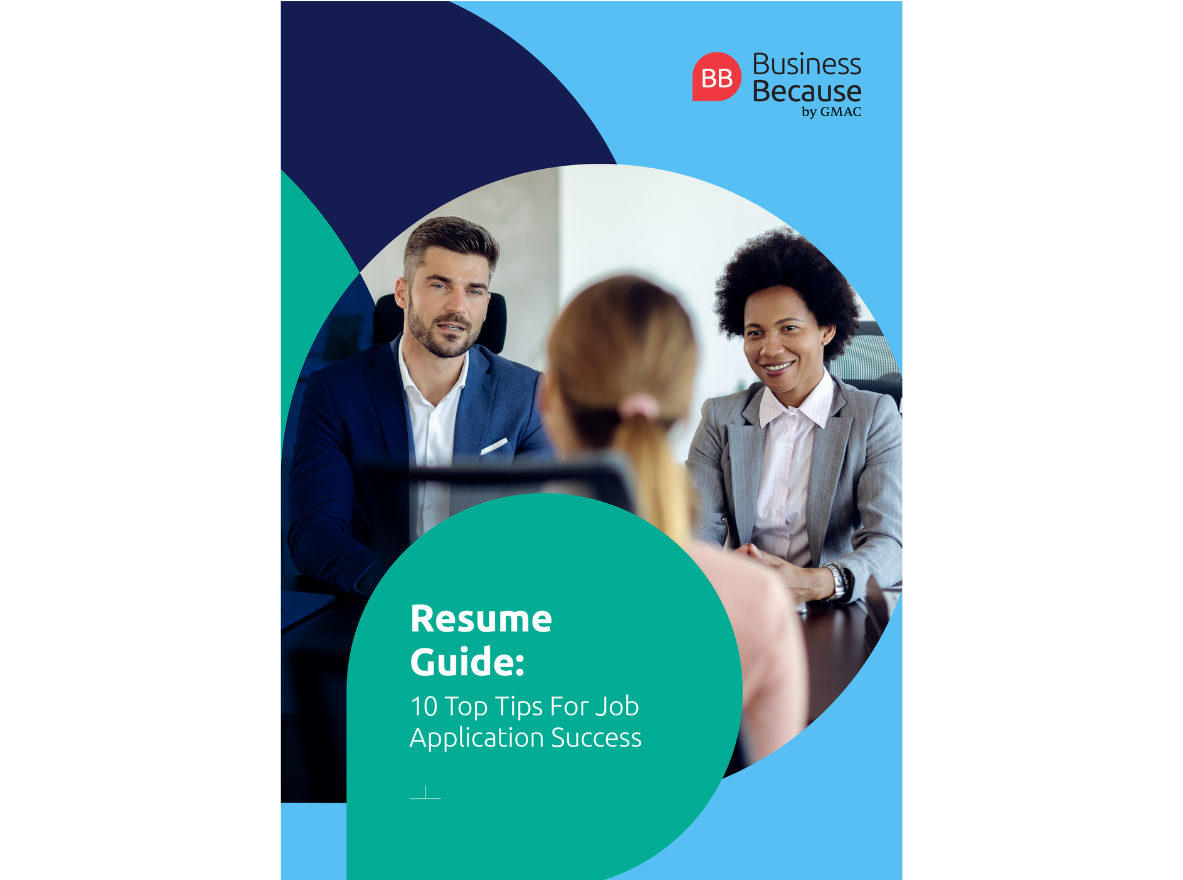Crafting a strong resume is no easy task. Despite being just a page or two in length, writing a resume that stands out to recruiters can take hours of dedicated work.
And since the average hiring manager spends just six to seven seconds looking at your resume, this small document has to deliver a lot of information fast.
With so much on the line, it’s important to understand the pitfalls you’re most likely to encounter when it comes to writing your resume.
Here are five of the most common resume mistakes to watch out for.
Download our BusinessBecause Resume Guide
For more expert guidance on your resume and free CV templates, download our BusinessBecause Resume Guide, where we reveal the 10 steps it takes to put together a resume that recruiters will remember.
Resume mistake 1: you don’t include tangible results
To really stand out, your resume should be more than a list of positions you’ve held. One of the most common resume mistakes you can make is to not include the concrete achievements you had in a job. Avoid the temptation to simply list the job titles that you have held and the responsibilities you were given within them.
“It’s better to go through all your achievements for each role and list out the skills that achievement represents,” says Larry Medina, director of career coaching at INSEAD.
Perhaps you consistently beat sales targets, implemented a new process, or increased traffic to a company website. Whatever your accomplishment, let the hiring manager know. When listing your achievements show quantifiable results. Quote statistics, describe completed projects, and include details of your achievements that will make them stand out to recruiters.
Resume mistake 2: including irrelevant information
When creating a resume, you have limited space to work with. This means thinking carefully about what to include, and what to omit.
Many candidates make the mistake of trying to cram their entire life story into a resume, making it tricky for the reader to identify what you can bring to their organization.
The most important information should come first. Start with the essentials: your name, contact information, and LinkedIn profile.
Next, consider the information that’s most likely to get you hired. Where possible, this should be relevant to the industry, the role, and its requirements.
Recruiters are looking for someone with the skills and experience to fit the job description, so the first one-third of your resume should focus on exactly that.
“You must sort it out yourself. Don’t make the recruiter do the work,” says Bérangère Deregnaucourt, career advisor at EDHEC Business School. “It’s essential to show the recruiter that you understand the challenges of the sector and the position the company is seeking to fill.”
Resume mistake 3: not writing for recruiters and robots
To ensure your resume isn’t thrown out by the ATS, you’ll need to pay careful attention to the job description, and pick out key skills and traits to include in your resume.
Resume mistake 4: your design is too elaborate
A confusing resume design can be equally off-putting to hiring managers and admissions teams.
If your resume is full of patterns, colors, and too many sections, readers might find it difficult to get a quick overview of your profile.
Use the same, legible font throughout and keep your format consistent, and remember, content is king.
Resume mistake 5: not having someone proofread
Even when you’ve spent hours writing, rewriting, designing, and editing your resume, typos and errors can still slip through the net. For this reason, not having a trusted friend or mentor proofread your resume is a big mistake.
“An application with mistakes is almost always discarded, which is quite a shame when you see all the work that has been done beforehand,” says Isabelle Chevalier, director of talent and careers at NEOMA Business School.
Getting a fresh pair of eyes on your resume can help you avoid this dreaded situation.



